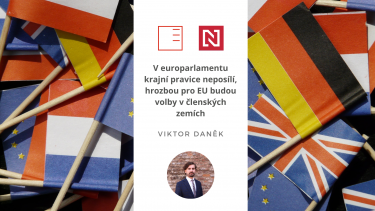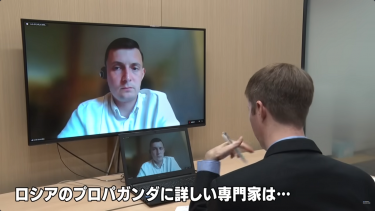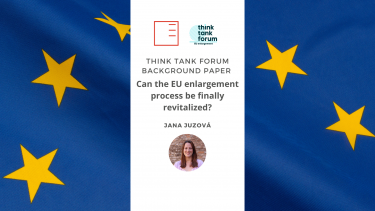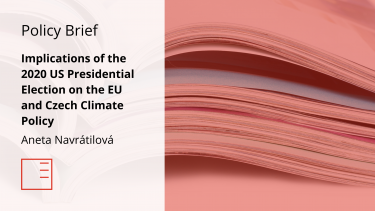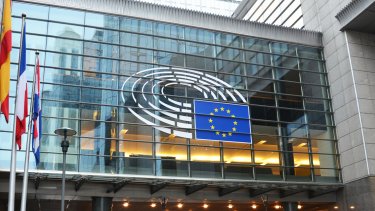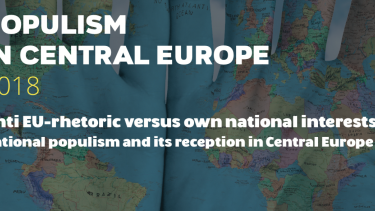Deník N | The far right will not strengthen in the European Parliament, elections in Member States will be a threat to the EU
The results of the European Parliament elections have confirmed the expected rise in the popularity of the far right and populism. Now it is the turn of negotiations within the factions. These will be decisive for voting on European legislation over the next five years. What is in store for MEPs in the coming days, how much will the election results rewrite the balance of power, what role will the far right play within the EP, or what is the real threat to Europe in the months ahead? Viktor Daněk, deputy director of the EUROPEUM Institute for European Policy and EU analyst describes for Deník N.
Show moreTBS NEWS | Behind the Rise of the Far Right: The Shadow of China and Russia?
The rise of far-right parties in the European Parliament elections has caused concern across the continent. Analysts point to external influences, particularly from China and Russia, as possible causes. Both countries are alleged to have tried to influence the elections through disinformation campaigns. While Europe is facing a rise in populism, possible foreign interference casts a shadow over the ongoing political debate. Jonáš Syrovátka, an analyst at EUROPEUM Institute, comments for the Japanese TV channel TBS NEWS.
Show more
Visegrad/Insight | Tractors Trending: V4 Populists Appropriate the Farmers’ Protests Ahead of the EP Elections
The populist camps in the Visegrad Four countries have used the farmers' protests in their populist campaigns for the European Parliament elections in June. A fundamental change to the last EU elections in 2019 is visible in the politicians' messages towards the people, with social media taking over the classic platforms such as television, press or radio. Project Manager of Global Europe programme at EUROPEUM Institute, Oszkár Roginer-Hofmeister, wrote an article on this topic for Visegrad/Insight.
Show more
RevivEU
RevivEU project, carried out by four leading institutions in the V4 countries, looks at the needs, concerns and fears of the V4 citizens in four various EU-related topics. It does so through both quantitative and qualitative research of citizens´ attitudes towards climate change, migration, covid-19 and the rule of law. It also analyses the governmental policies in these four main areas and how the communication of these policies is framed in the public discourse.
Show moreBackground Paper Think Tank Forum | Can the EU enlargement process be finally revitalized?
This article was written as background material for a panel discussion at the Think Tank Forum: EU Enlargement. The author of the article is senior researcher Jana Juzová. In the article, she discusses, for example, whether the war in Ukraine will speed up the accession negotiations of the Western Balkan countries to the EU.
Show morePOLICY BRIEF: Implications of the 2020 US Presidential Election on the EU and Czech Climate Policy
In her brief, Aneta Navrátilová writes about the implications of the 2020 US Presidential Election on the EU and Czech Climate Policy
Show more PDF
Policy paper: The future of EU Finances: New Own Resources
Markéta Mlčúchová published a policy paper about the reform of EU's budget – and especially its income side – using tools such as Common Consolidated Corporate Taxes, non-recycled plastic packaging waste tax or income from European Emissions Trading System (ETS) auctions.
Show more PDFBritish politicians made Farage’s 2019 European election campaign easy
Our Jirka Lacina wrote a blog on Nigel Farage's EP election bid.
Show more
ELECTIONS COMMENTARY: Main election topics of the upcoming European Elections
Our Kateřina Davidová and Vít Havelka published a commentary aiming to provide the reader with an overview and general understanding of the context that the upcoming European elections will take place in.
Show more PDF

Populism in Central Europe 2018
Together with the Austrian Society for European Politics, the Center for European Neighborhood Studies at the Central European University Budapest, the Faculty of Social Sciences at the University of Ljubljana and GLOBSEC Policy Institute in Bratislava we jointly launched a project with the goal to examine why political and societal actors resort to an “anti-European” rhetoric. The final report from the project is now available.
Show more PDF
Staroměstské náměstí 4/1
Prague 1 - Staré Město
110 00
tel.: +420 212 246 552
email: europeum@europeum.org
https://www.europeum.org
